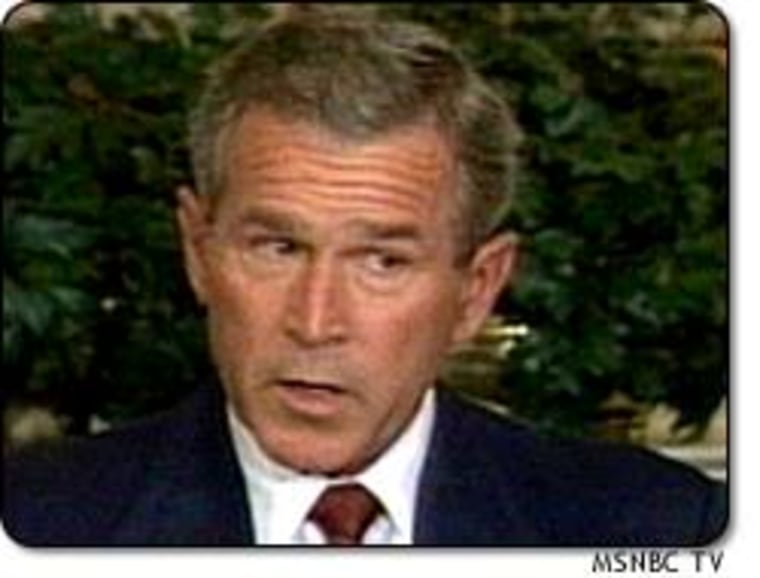While court fights continued, President Bush on Monday signed legislation to ratify the Federal Trade Commission’s authority to set up a national do-not-call list that could lead to fines for telemarketers.
“The public is understandably losing patience with these unwanted phone calls, unwanted intrusions,” Bush said. “Given a choice, Americans prefer not to receive random sales pitches at all hours of the day. The American people should be free to restrict these calls.”
Businesses that solicit people on the list for telemarketers could face fines. Federal Communications Commission Chairman Michael Powell said earlier Monday his agency would enforce the penalties because the FTC was prevented from doing so by a federal judge’s order.
“FCC rules have not been disturbed by recent court cases,” Powell said.
His intervention was the latest twist involving a do-not-call list containing more than 50 million telephone numbers sent in by people who say they don’t want to be bothered by telemarketers.
U.S. District Judge Lee R. West ruled in Oklahoma City early last week that the FTC lacked authority to run the registry. That prompted Congress to quickly pass a bill clarifying the agency’s role.
Bush signed the measure at a White House ceremony Monday afternoon. However, the legislation did not address other court fights that have thrown the list into legal limbo.
Despite two court rulings against the FTC, the FCC still has the power to penalize telemarketers who call listed numbers, potentially fining them as much as $120,000 depending on their industry, FCC spokesman David Fiske said.
Before the court challenges, it was uncertain whether the FCC would have a role in enforcing the list.
“They don’t have any prohibitions against them,” FTC spokeswoman Cathy MacFarlane said. “They can go forward and do what we would have done.”
Powell noted that in yet another court ruling related to the list, a three-judge panel of the Denver appeals court on Friday denied a request from telemarketers who wanted to block the FCC’s role in the registry.
On Monday, the telemarketers asked the Supreme Court to overturn that decision. If the Supreme Court grants that request to temporarily suspend the FCC’s rules, both agencies would be blocked from enforcing the list.
The FCC joined last summer with the FTC, which operates the registry, to ensure the list applies to all industries. The FCC’s do-not-call regulations mirror and expand upon those of the FTC, which have been put on hold.
On Thursday, U.S. District Judge Edward W. Nottingham ruled that the do-not-call list is unconstitutional on free-speech grounds because it applies to calls from businesses but not charities. That decision effectively blocked the FTC from enforcing the list.
The FTC says people can still sign up for the list and file complaints about telemarketer violations at www.donotcall.gov or by calling 1-888-382-1222.
“The FCC will enforce its do-not-call rules against telemarketers that have obtained the do-not-call list from the FTC, beginning Wednesday,” Powell said.
Adding another wrinkle to the bewildering situation, the FTC on Sunday shut down the service that allows telemarketers to obtain the list so they can know who not to call. So not all telemarketers have the list.
Many of those that do have it say they will comply despite the legal confusion.
The Direct Marketing Association, representing more than 70 percent of the telemarketing industry, asked its members last week to abide by the list.
Nearly 200 of the largest members have voiced no objection to the request and some have actively pledged to comply, association spokesman Louis Mastria said Monday.
“The industry seems to understand what we’ve said for almost 20 years: People don’t want to get called, they shouldn’t get called,” Mastria said.
